Про журнал
Галузь та проблематика
Цілі журналу: популяризувати та підтримувати дослідження в галузі неперервної професійної освіти; моделювати відкритий та інформативний міждисциплінарний форум для обговорення проблем модернізації української та зарубіжної систем професійної освіти.
Електронний науковий журнал «Неперервна професійна освіта: теорія та практика» публікує статті з проблем філософії, теорії та практики неперервної професійної освіти.
Науковий журнал адресовано науковцям, студентам, викладачам закладів вищої освіти, магістрантам, аспірантам, докторантам, слухачам системи післядипломної освіти, усім, хто цікавиться проблемами філософії, теорії та практики неперервної професійної освіти.
Науковий журнал «Неперервна професійна освіта: теорія і практика» включено до переліку наукових фахових видань України (Категорія «Б»), у яких можуть публікуватися результати дисертаційних робіт на здобуття наукових ступенів доктора наук, кандидата наук та ступеня доктора філософії у галузях: 011 - Освітні, педагогічні науки, 012 - Дошкільна освіта, 013 - Початкова освіта, 014 - Середня освіта (за предметними спеціалізаціями), 015 - Професійна освіта (за спеціалізаціями), 016 - Спеціальна освіта (Затверджено наказом Міністерства освіти і науки України № 164328 від 28.12.2019).
Відповідно до Наказу Міністерства освіти і науки України № 768 від 20 червня 2023 р. електронне наукове фахове видання «Неперервна професійна освіта: теорія і практика» переведено до переліку електронних фахових видань категорії «Б» за спеціальностями 011 – Освітні, педагогічні науки, 012 – Дошкільна освіта, 013 – Початкова освіта, 014 – Середня освіта (за предметними спеціалізаціями), 015 – Професійна освіта (за спеціалізаціями), 016 – Спеціальна освіта
Процес рецензування
Рецензування проходять всі статті, які надійшли до редакційної колегії. Процедура рецензування орієнтована на максимально об’єктивну оцінку змісту наукової статті, визначення її відповідності вимогам журналу та передбачає всебічний аналіз переваг та недоліків результатів дослідження. До друку приймаються лише ті статті, що є цінними з наукової точки зору та сприяють розв’язанню актуальних освітніх проблем та завдань.
Головною метою процедури рецензування є усунення випадків недоброякісної практики наукових досліджень та забезпечення узгодження й додержання балансу інтересів авторів, читачів, редакційної колегії, рецензентів та установи, у якій виконувалось дослідження. Рецензенти оцінюють теоретико-методологічний рівень статті, її практичну цінність та наукову значущість. Окрім того рецензентами визначається відповідність статті принципам етики у наукових публікаціях та надаються рекомендації щодо усунення випадків їх порушення.
Етапи рецензування:
1. Автор надає до редакційної колегії статтю, яка відповідає вимогам журналу.
2. Перевірка статті на антиплагіат. Для всіх статей, що надаються на рецензування, визначається ступінь унікальності авторського тексту за допомогою програмного забезпечення Unichek.
3. Всі рукописи, які надходять до редакційної колегії спрямовуються за профілем дослідження на рецензування.
4. У якості рецензентів виступають незалежні висококваліфіковані фахівці, які володіють глибокими професійними знаннями й досвідом роботи за конкретним науковим напрямком і здійснюють дослідження за спеціальністю.
5. Рецензент протягом 14 діб робить висновок про можливість друкування статті (заповнює стандартизовану форму, яка містить підсумкові рекомендації).
6. Рецензування проводиться конфіденційно за принципами double-blind рецензування (двостороннє «сліпе» рецензування, коли ні автор, ні рецензент не знають один про одного).
7. Якщо рецензент вказує на необхідність внесення до статті певних коректив, стаття направляється автору з пропозицією врахувати зауваження при підготовці оновленого варіанту статті або аргументовано їх спростувати. До переробленої статті автор додає листа, який містить відповіді на всі зауваження та пояснює всі зміни, які було зроблено у статті. Виправлений варіант повторно надається рецензенту для прийняття рішення й підготовки мотивованого висновку про можливість публікації.
8. Рецензенти надають рекомендацію щодо можливості публікації статті за такими градаціями:
• опублікувати без змін;
• опублікувати за умови подальшого доопрацювання статті автором;
• опублікувати після значного доопрацювання статті автором;
• відхилити статтю в цілому.
9. Остаточне рішення щодо можливості та доцільності публікації приймається засіданням редакційної колегії.
Захист прав авторів
Рецензенти повідомляються про те, що направлені ним рукописи є інтелектуальною власністю авторів та відносяться до тих відомостей, що не підлягають розголошенню. Рецензентам не дозволяється робити копії наданої на рецензування статті або використовувати матеріали статті до її опублікування.
Рецензування відбувається на засадах конфіденційності, коли інформація щодо статті (строки отримання, зміст, етапи та особливості рецензування, зауваження рецензентів та остаточне рішення щодо опублікування) не повідомляється нікому, окрім авторів та рецензентів. Порушення даної вимоги можливо лише у випадку порушення етики публікацій з боку учасників публікаційного процесу.
Політика відкритого доступу
Міжнародна індексація журналу
Науково-методичний журнал «Неперервна професійна освіта: теорія і практика» індексується в наступних наукометричних базах:
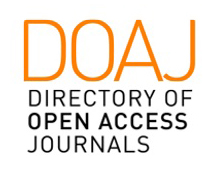
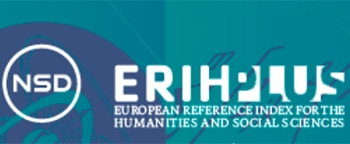
1.png)






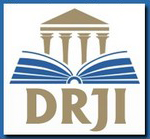
.png)





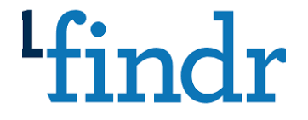

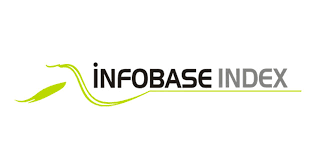
Етична політика журналу
Редакційна політика наукового журналу «Неперервна професійна освіта: теорія і практика» спрямована на дотримання етичних норм, прийнятих міжнародною науковою спільнотою.
Діяльність редакційної колегії спирається на рекомендації Комітету з видавничої етики (Committee on Publication Ethics), на цінний досвід авторитетних міжнародних журналів та видавництв, а також положення діючого законодавства України.
Редакційна колегія також керується ПОЛОЖЕННЯМ про академічну доброчесність науково-педагогічних, наукових, педагогічних працівників та здобувачів вищої освіти Київського університету імені Бориса Грінченка.
До розгляду не приймаються матеріали авторів, що містять образливі висловлювання, прояви агресії чи національної, релігійної, расової та іншої дискримінації та можуть призвести до міжнаціональної та расової ворожнечі, а також порушують міжнародні правові норми і законодавство.
Журнал дозволяє авторам зберігати авторські права без обмежень.
Усі взаємовідносини з питань видавничої етики, що виникають між авторами та редакційною колегією журналу і не врегульовані цим документом, регулюються міжнародними загальноприйнятими стандартами COPE (Committee on Publication Ethics).
Загальні обов’язки та відповідальність сторін:
Члени редакційної колегії:
- дотримуються етичних аспектів роботи членів редакційної колегії, що передбачені Кодексом редакторської етики (https://publicationethics.org/files/Code_of_conduct_for_journal_editors_Mar11.pdf).
- заохочують і підтримують наукову добросовісність і доброчесність, дотримуються редакційної незалежності, надають пріоритетність обговоренню і дискусіям;
- забезпечують своєчасне проходження ретельного відбору та незалежного рецензування матеріалів, запропонованих до публікації;
- несуть відповідальність за організацію прийняття матеріалу до друку, призначення рецензента, повідомлення автора про затвердження матеріалу до друку, відхилення чи повернення на доопрацювання;
- повинні надсилати результати рецензування, зауваження і рекомендації авторам у термін не більше, ніж 3 тижні; у редакції журналу має зберігатися документація, що містить результати рецензування поданих до розгляду матеріалів;
- гарантують конфіденційність процедури рецензування; не розголошують прізвища та іншу інформацію про авторів та рецензентів без їхнього дозволу;
- не надають іншим особам жодної інформації, пов’язаної зі змістом рукопису, що розглядається, окрім осіб, які беруть участь у рецензуванні. Після остаточного позитивного рішення редакційної колегії і затвердження випуску журналу Вченою радою Університету стаття публікується в журналі та розміщується на його веб-сторінці, а також передається на відповідні електронні ресурси Національній бібліотеці України імені В.І. Вернадського та розміщується на веб-сайтах міжнародних науково-метричних баз;
- зобов’язані розглядати будь-які скарги, питання чи пропозиції авторів та рецензентів;
- мають право відхилити надіслані статті, якщо вони не відповідають тематиці журналу;
- мають право приймати остаточне рішення щодо публікації статті в журналі, зважаючи на її оригінальність, новизну та відповідність вимогам журналу;
Автори:
- надають точний опис проведеного дослідження, об’єктивно висвітлюють його наукову новизну й практичну значущість;
- несуть повну відповідальність за погляди, думки, результати та висновки, викладені в статтях;
- відповідальні за достовірність інформації в статтях, точність назв, коректність використаних джерел та цитувань прізвищ та цитат;
- підтверджують, що подана для розгляду стаття не була оприлюднена раніше (частково чи повністю). Якщо матеріали вже було опубліковано раніше, автор повинен надати редакції бібліографічну довідку про попередні публікації та обґрунтувати актуальність публікації нового варіанту, пояснивши характер доповнень і змін, внесених до останнього варіанту статті;
- мають повідомити про будь-який потенційний конфлікт інтересів, а також гарантувати відсутність контрактних стосунків або прав власності, які могли б вплинути на публікацію результатів, що містяться в рукописі (https://publicationethics.org/files/Recognise_Potential_Authorship_Problems.pdf)
Рецензенти:
- дотримуються етичних принципів роботи рецензентів, що розроблені Комітетом з видавничої етики COPE (https://publicationethics.org/files/Ethical_guidelines_for_peer_reviewers_0.pdf);
- повинні оцінювати всі подані до розгляду матеріали відповідно до визначених критеріїв. Статті мають бути розглянуті в термін не більше, ніж 2 тижні;
- оцінюють рукопис без урахування етнічної, гендерної, релігійної, політичної приналежності авторів;
- забезпечують принципи конфіденційності усіх матеріалів, що стосуються публікації;
- рецензентам заборонено розкривати інформацію зі статті чи використовувати у власних дослідженнях будь-яку частину неопублікованих матеріалів;
- зобов’язані негайно інформувати редакційну колегію про статті, що містять плагіат, хибні дані або необ’єктивне цитування, проте звинувачення в наявності плагіату має супроводжуватися адекватними та аргументованими доказами;
- мають враховувати можливість конфлікту інтересів результатів дослідження, що рецензується, з особистими розробками або наявність таких професійних чи особистісних зв’язків рецензента з автором, які можуть вплинути на судження рецензента. У випадку наявності конфлікту інтересів рецензент має повернути рукопис без рецензії, повідомивши редакційну колегію про конфлікт інтересів.
Механізм усунення порушень етики публікацій і недоброчесної практики відповідає COPE:
Ситуації, пов’язані з порушенням етики публікації з боку редактора, автора або рецензента, потребують обов’язкового розслідування. Редакційна колегія діє згідно з нормами, встановленими Комітетом з видавничої етики (COPE), й відповідно до специфіки виявлених порушень. Рішення редакційної колегії має бути неупередженим, об’єктивним і не залежати від третіх осіб. У цілях забезпечення об’єктивності редакційна колегія ретельно досліджує кожен випадок і розглядає аргументи усіх зацікавлених сторін.
Види порушення етики публікації:
- порушення норм загальнолюдської моралі, мова ворожнечі, приниження гідності інших осіб, установ, організацій, дискримінація за віковими, расовими, соціальними, національними, гендерними, релігійними, територіальними, професійними, політичними критеріями в тексті публікації;
- нерозкритий конфлікт інтересів;
- повторна публікація статті;
- плагіат;
- відсутність покликання на джерело чи інші порушення авторських прав;
- сфальсифіковані дані, зазначення фіктивних співавторів, публікування під несправжнім ім’ям;
- привласнення авторської наукової ідеї або даних рецензентом, редактором тощо.
Якщо рецензенти або члени редакційної колегії виявили такі порушення, то вони мають діяти відповідно до алгоритму, запропонованому Комітетом з видавничої етики (COPE):
- Запросити пояснення від автора, рецензента чи члена редакційної колегії щодо порушення публікаційної етики.
- За умови задовільних пояснень продовжити публікаційний процес.
- За умови незадовільних пояснень стаття чи рецензія з порушенням публікаційної етики відхиляється.
- Усі рішення щодо порушення публікаційної етики приймаються на засіданні редакційної колегії з обов’язковим відкритим голосуванням і фіксацією рішення в протоколі засідання редакційної колегії.
Конфлікт інтересів
Відомості, що містяться в представленій статті, не повинні використовуватися в будь-яких власних роботах головного редактора і членів редакційної колегії без письмового дозволу автора. Конфіденційна інформація або ідеї, отримані при рецензуванні, повинні зберігатися в секреті і не використовуватися для отримання особистої вигоди. Головному редактору слід відмовитися від своєї участі у рецензуванні в разі, якщо присутній конфлікт інтересів, що виникають із конкуренції, співробітництва чи інших відносин з будь-ким з авторів, компаній або установ, що мають відношення до статті. Головному редактору слід вимагати від усіх авторів журналу надавати відомості про відповідні конкуруючих інтересах і публікувати виправлення, якщо конфлікт інтересів був викритий після публікації. У разі необхідності, може виконуватися інша належна випадку дія, така як публікація спростування або вирази заклопотаності.
Спонсори
Журнал видається з благодійною метою для безкоштовного розповсюдження.
Плата за статтю з авторів не стягується.
Фінансування випусків здійснюється коштом Благодійного фонду імені Антона Макаренка


